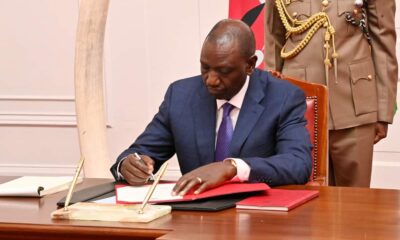A quiet wave of privatization is sweeping across Kenya, disguised as reform but in reality amounting to a calculated transfer of public wealth into private hands.
Behind the polished speeches and technical jargon lies a growing network of political elites who are using trusted associates and shell companies as proxies to acquire state-owned corporations and national resources.

Power, money, and secrecy — the quiet sale of Kenya’s public wealth
The New Face of State Capture
It is not truly economic reform that is underway. It is a state capture in a contemporary way.
It has become the cry of the government insiders and analysts that state assets acquired over decades of taxpayer labor are being sold in a planned manner to those who are connected with those in power. In the present privatization strategy, the government has put a number of lucrative parastatals on sale, including the energy, transport, and education sectors.
This is technically being offered as an efficiency improvement and investment attraction measure. But what is concealed behind this story of a public account is the reality of manipulation, favoritism, and secrecy. Most of the purchasers who have shown interest in these sales are people who have close connections to the government officials in high positions. They are involved under several layers of corporate ownership and front companies that complicate the process of tracing the actual beneficiaries to near impossibility.
One of the senior officials who dealt with the process and preferred to remain anonymous has explained it very simply: They are not mentioned in the paperwork. Their proxies do. That is the way the trail is cleaned.
Selling the Nation Through the Back Door
Companies like Kenya Pipeline Company, Kenya Ports Authority, Kenya Power, and even some of the state universities have been silently put on the sale list. Citizens are never made aware of such transactions until such deals are concluded.
They are not institutions in failure. Most of them are prime land and bring in a lot of money, as well as have strategic national value. Their conversion to the ownership of a small group of businessmen with political connections is a danger to national security and the destruction of people’s trust.
The excuse of efficiency is an easy coating. It is control and profit that are really at issue. When these organizations are privatized, the service delivery will no longer be in the interest of the people but in the profit motive of these organizations, and the people of Kenya will incur more when using electricity, education, healthcare services, and transport.

Behind every policy, a deal. The privatization web runs deeper than Kenyans are told
The Proxy Web
The privatization process has evolved into a well-organized system that benefits the politically powerful.
The sequence is simple but effective:
-
A state corporation is identified as a candidate for privatization.
-
Associates of politicians or newly registered companies bid as independent investors.
-
The assets are deliberately undervalued and sold discreetly.
-
After a short period, the same politicians or their families quietly emerge as beneficiaries through corporate shareholding or consultancy roles.
Public records already indicate that several companies bidding for these assets have minimal operational history and suspicious links to senior government figures.
The Betrayal of the Public
The betrayal of people in such conditions is the privatization of the public assets. It undoes years of national development and turns the nation into the subject of exploitation by a small group of people.
Although the government claims that such sales aim at increasing revenue and lowering public debt, little has been done to show transparency on the way the proceeds are employed. The Kenyans are worried that the funds collected in the sale of national assets will never trickle down to the vital state services or development initiatives.
The final solution is expected: privatized gains and socialized losses. It will be implemented at the expense of the masses, who will see a small elite group gain colossal amounts.
A Repetition of History
There are similar cases that Kenya has witnessed. The failures of institutions like Mumias Sugar, the downfall of Kenya Railways, and the collapse of projects in the privatization of housing all have one thing in common: political interference and corruption in the guise of reform.
It is a reenactment of the cycle, only this time it is more sophisticated and less transparent. The 2024–2025 privatization agenda threatens to turn out to be the biggest legal selling of the democratic wealth to the privately held in Kenya in history.
Questions Kenyans Must Ask
Who exactly are the investors buying these assets?
Why are the identities of the real beneficiaries hidden behind proxies?
What oversight mechanisms exist to ensure fairness and transparency?
And most importantly, who is protecting the public interest?
Without clear answers, this privatization drive will deepen inequality, enrich the few, and leave the nation poorer than before.
The Real Truth
Kenya is not being privatized as a matter of fact. It is selling, without a murmur, in an orderly manner.
The political class is consolidating economic power through shell companies, proxies, and opaque transactions and thereby subverting democracy itself. It is not a simple economic problem. It is a moral and constitutional crisis.
The people of Kenya are being deprived of their assets, which are being given to a select few, without their knowledge. The silent auction should be revealed before it is too late.
Read more: High Court Halts Equity Bank’s Takeover Bid on Swafi Foods in Landmark Ruling

 Entertainment1 week ago
Entertainment1 week ago
 General News1 week ago
General News1 week ago
 General News1 week ago
General News1 week ago
 Business News1 week ago
Business News1 week ago
 General News6 days ago
General News6 days ago
 Entertainment5 days ago
Entertainment5 days ago
 General News1 week ago
General News1 week ago
 Politics3 days ago
Politics3 days ago





